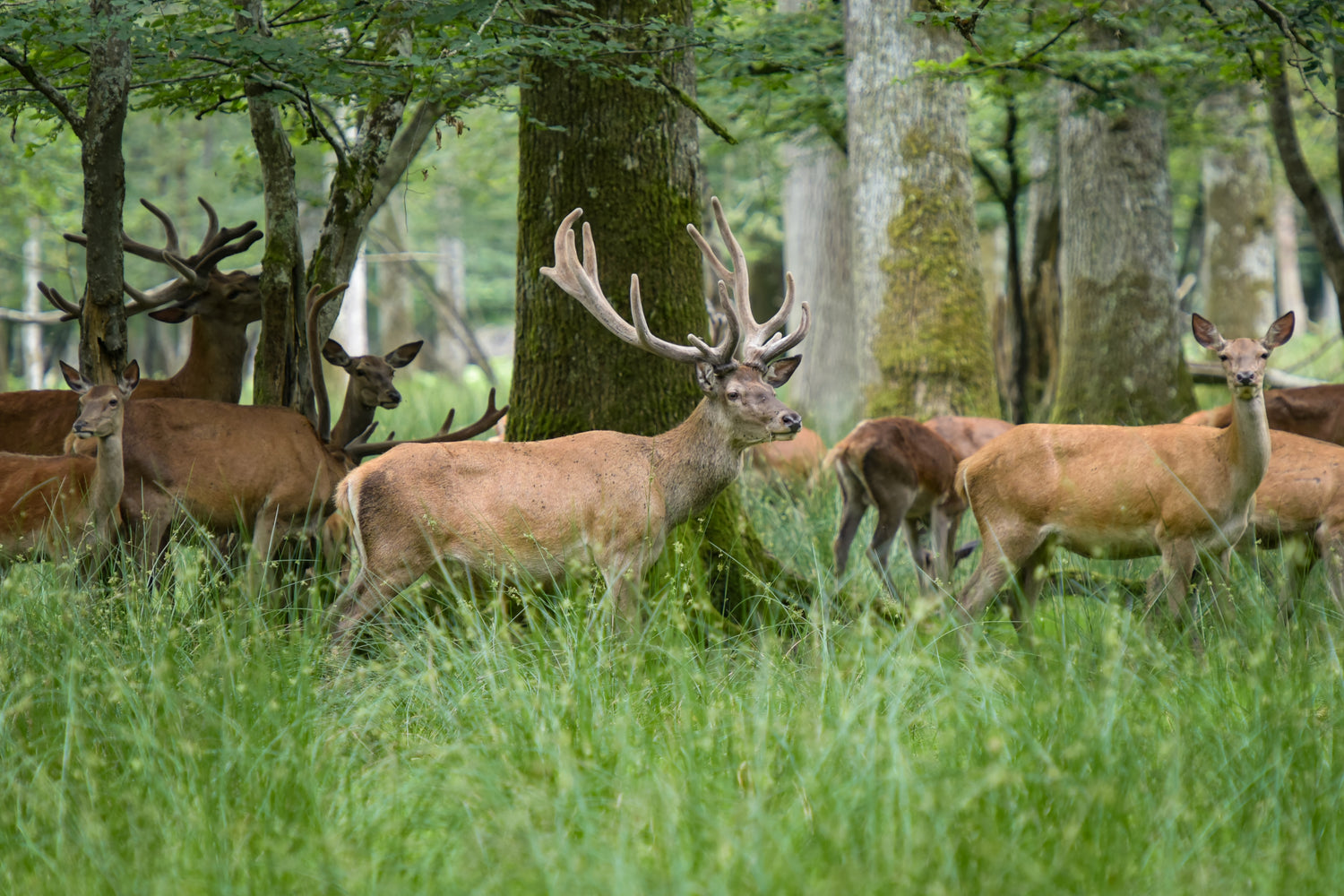The Ethical Eaters

Our wild harvesting is carried out by professional rangers to ensure the deer have a stress-free existence. The proof of this is in the lack of any oxidative stress indicators in wild venison, this is in stark contrast to farmed livestock, we call Lean & Wild venison stress free meat.
By choosing Lean & Wild you are helping to control the the high deer numbers and helping to improve our biodiversity and carbon capture.
The Ecology

Everything is connected.
The UK deer numbers have risen from 450,000 to 2.9m today, these are the highest the population has been since the days of William the Conqueror.
Only 11.7% of the UK is woodland vs a European average of 44%. The high deer numbers are the biggest barrier to reforestation.
We believe that our land should be valued for it’s biodiversity, the health + nutrition it provides us and not just on the calories it can produce.
By eating this delicious and healthy protein, we are also helping to REBALANCE the biodiversity of our countryside.
We can be part of the solution.
Wild Harvesting

Wild harvesting embraces nature's balance by sustainably sourcing venison from the UK's countryside. This method ensures healthy ecosystems by managing deer populations, protecting biodiversity, and delivering premium, natural meat. A commitment to ethical and environmentally conscious practices.
Why Wild?
The UK has stunning sceneries directly shaped by the soil that forms them. Soil is one of our greatest natural assets and in the UK we have a rich variety of soil types. Our rich soils and mild climate help produce abundant and diverse vegetation and this ultimately feeds and nourishes our deer. This is why our Lean and Wild Venison has such outstanding nutritional density.
Adaptability in diet has helped deer to proliferate in the UK. Although ~80% of their diet consists of grasses, native and non-native alike, rumen samples have shown that the rest of their diet can be made up of a wide variety of nearly 200 plant species—creating a nutritional complexity unmatched in conventional meats.
Unlike farmed animals, Wild deer are able to actively choose nutrient-rich plants to maximise their own health. This instinctual selection process—what biologists call "nutritional wisdom"—allows them to balance their nutrient intake throughout varied environmental conditions. Studies show that wild ungulates can detect and select plants with higher mineral and polyphenol content, actively seeking out specific nutrients their bodies need at different times.
Daily movement patterns can cover miles of varied terrain, from shaded slopes to open grasslands, enabling our deer to access diverse plant communities that a confined animal never could. This constant movement not only builds healthy muscle tissue with ideal fat distribution but also ensures their diet remains varied and complete.
The latest carbon footprint analysis shows wild venison is 85% less intensive than beef (5.6kgCO2e/kg vs 37.8kgCO2e/kg). However as all Lean & Wild venison is wild, the methane produced by our deer would be occurring in the atmosphere anyway and if you take the methane out of the calculation, it reduces the footprint of our venison to 1.1kg per 1kg of meat. Placing it between beans and tofu!

